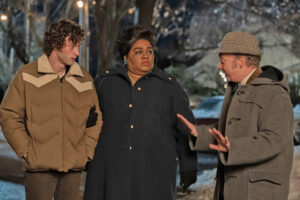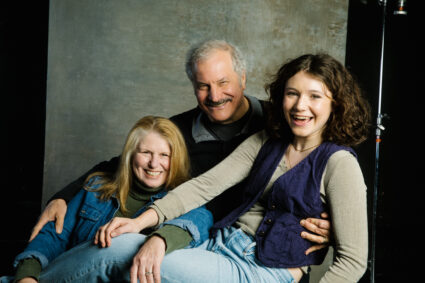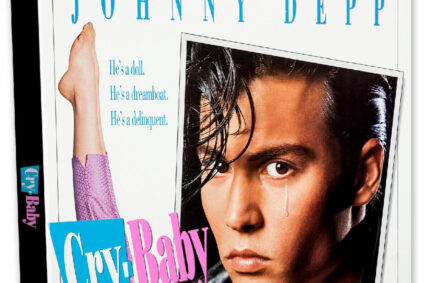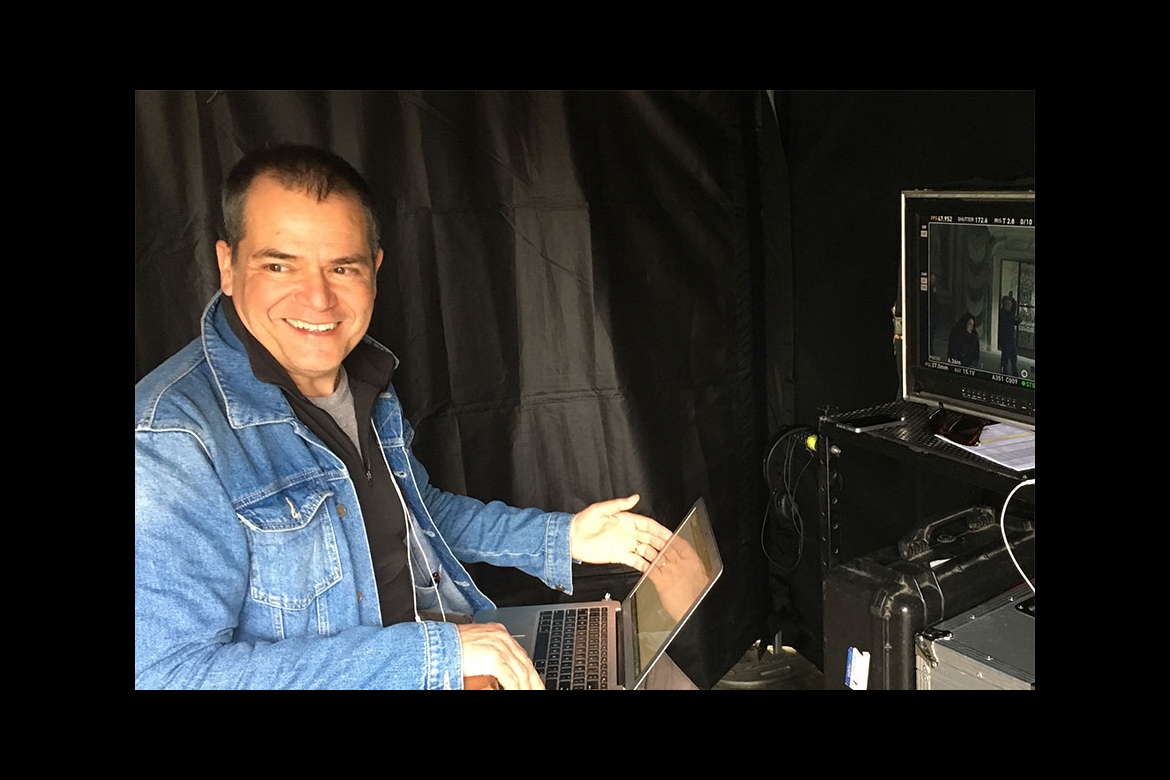
In Today’s edition of THE INTERVUE, a new film by Alexander Payne coming out this Friday takes us back to a simpler time and makes itself as a great coming of age story called “The Holdovers”. This was one of the amazing films that was featured at this year’s Middleburg Film Festival!
Set in the early 1970s, the film follows Paul Hunham, a disliked teacher at Barton Academy, who’s responsible for supervising students who are unable to return home for the Christmas holidays. During this process, Hunham is forced to deal with one particularly rebellious but troubled student, Angus, who is grieving the loss of his father.
I recently talked to co-producer/screenwriter David Hemingson about this amazing tale!
This was a wonderful film. I’m definitely sensing Oscars in its future because the acting & the writing is wonderful. I want to know what made you not only to write this beautiful film but also produced it.
I had written a pilot called “Stonehaven”, which is about my personal experiences at this prep school, and it was set in 1980. I was always fascinated by the world. I was a kind of a blue-collar kid who got to go there. My dad was actually teaching at this place, my parents have been becoming estranged. I kind of came at it from almost sort of a romantic perspective early on, but then I got to attend the school and, I always wanted to write something. So, I wrote the pilot about my personal experiences.
And then, Alexander Payne got a hold of it. He loved the pilot but didn’t winna make a pilot, he wanted me to write a movie. I like the world. It’s a world that’s both romantic and difficult. It’s got like its secrets. It’s got complications but I’ve always been fascinated by it. I lived there for six years. So writing was a real labor of love. Plus, Alexander Payne asked me to write anything. If he asked me to write a thank you note, like for a bar mitzvah, he’s like, “how many thank you notes, 800, I’ll do it for you.” Whatever he wanted me to write, I’d write.
Producing a film was just a real pleasure, because I’ve been a TV writer producer for 27 years. So for me, the producing angle of it came naturally. And also, it was important to be produced because there was a verisimilitude on the ground that I wanted to be able to ensure or help or help ensure whether it’s the costumes, the settings, or certainly the casting, although he’s got phenomenal taste in casting. It was he drove that. So that’s sort of that’s sort of why I wanted to do it.
Was it difficult to take the pilot version of your script and transition it to a feature film?
Yeah, it was actually more there were kind of apples and oranges in that. There’s the world, but this entire story, and the characters kind of went away. And it’s like, we’re still in the same world, but it’s in a previous generation and new characters. I think the pilot pretty much kicked the door open for him. And they go, “Okay, this guy can write this world, and he can write these kids. Can he do something totally different, but in the same arena?” It was hard rehashing this and coming up with a brand-new story to serve the characters, but it was also really exciting and fun.
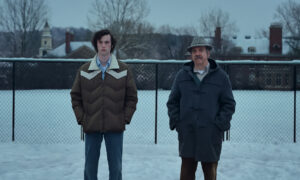
Credit: FOCUS FEATURES
That’s why I’m glad to hear now talk about having the legendary actor Paul Giamatti playing the teacher Paul Hunnam, and newcomer Dominic Sessa who plays Angus Tully, who is a version of you?
I mean, honestly, Paul’s character is a version of my uncle who raised me. He was born in 1920. I made sure that Paul’s character is born in 1920. I had an uncle who was a huge influence on me. He was this brilliant guy who spoke like he’s from another era completely. He was raised on an island off the coast of Washington State, and he didn’t really even hear the radio until he was nine. So, he was based on like Dickens and Thackeray, and all these Thomas Hughes novels. Then he went on to be drafted in World War II and went to fight in Saipan and then spent ten years as an expatriate wandering Europe. He was an incredibly rich character. I just took that, and kind of created Paul from the component parts of that.
You know, you’re right, Angus is a lot of me, but give it up and turn it over to Paul. Paul Giamatti just utterly embodied Paul Hunnam which has many characteristics that I kind of took from my uncle. It was such incredible aplomb and such incredible sympathy and also just shot through with this remarkable sense of humor.
I couldn’t stop laughing at his quips and his mannerisms because they were so impressive and really brought to life on screen. And speaking of which, what was one scene that you wrote that when you saw it being made to life that it blew your mind?
I’m trying to think I would say the two scenes that one of them was the “do not cross that Rubicon” and the kid hurt himself, and then screaming in the back of the car, And in the back of the car, he’s like, “it’s your fault.” Paul’s like, “I told you to stop like that.” I hoped it would be funny, but my friend was just like, “fantastic!”
Another scene was Da’Vine in the kitchen. When she says, “he’s gone”, when she finally accepts that Curtis is dead and accepts it. I wrote that and I wanted it to be effective, because I really try to push myself as far as I can emotionally when I write this stuff, because I feel like no tears in the writer, no tears in the reader. I try to write things that are genuine without being maudlin. The simplicity & utter genius of her performance throughout the film, but especially in that moment, where she just says, “he’s gone.” And even the way that Danny kind of comes down, tries to comfort her and “let me take you home”, she’s like, “back off!” That was just so real. I would say that in terms of the transformative element of filmmaking from the page to the screen that was without a doubt the thing that I was most impressed and grateful to Da’Vine, grateful to Alexander, it’s amazing.
Then the final thing would be the monologue. In the restaurant, when he starts, “he used to be fine. He used to be better than funny. He was great. He was my dad.” That coming from a newcomer Dominic who had never acted on film before. I don’t know if you notice. I’m sure you did. We start like right “here”. Right, we start right here. (motions on a close-up shot) And it’s a slow pullback slow, very slow over the course of a monologue that lasts the lion’s share of full page. That’s the first take the in the movie. And basically, the cameras up his nostrils like it’s so close. Who is able to do that? What 17-year-old actor or anyone? Their first time, the first take, their first film set pulls that off that amazed me.
It is sensational. And another thing that sensational is that I found out is the settings in the film. The schools, the diner, every place that was shot were not in soundstages, those were real places.
We had zero builds on this. We didn’t build a thing. That’s all practical. And I was so proud of myself because when I wrote it, I’m like, “Okay, well, you need gymnasium. We need a chapel; we need a dining hall. And I’m like let’s set up my own prep school.” I’m like, “Okay, we have all those things and I’ll just write this, and it’ll be great. I’ll be a good producer. We’ll set it all in one place. We’ll just move the camera around the campus, and it’ll be great.” And then Alexander moves out there. Alexander is a brilliant filmmaker, as you know. What’s interesting is a lot of people don’t notice his process is so immersive. I think he was living in Massachusetts for nine months.
So, when I got a call at one point, he’s sending me location photos, right? I think this is great. I expect him to say, “we found the school.” And I said “so?” So eventually, we found a school. I said, “Great, what school?” He said, “no, it’s five schools. It’s five schools.” I said, “well, I wrote it all so you can be one location.” He goes “yeah, but there was a great gymnasium over here. There’s a great dining hall at this place. There’s a great chapel over here.” So, Barton Academy really is five different schools.
Wow, that’s crazy and exciting! What do you hope audiences will take away after watching this film because I feel it’s a wonderful coming of age film. It tugs at the heartstrings from time to time.
You know, I will say this, and this is sort of my really earnest honest belief. Very, very simple. It’s a love story. It’s a love story between three people who save each other. Three people who are holding over in their lives, who are stuck for different reasons. I mean, each of them has had a tragedy, or some ferocious difficulty. Mary, being the one who’s really lost the most.
They’re holding over in their own lives. They’re stuck in their own lives because of this trauma that each of them has suffered different traumas. But the film is a love story about people who start off not to liking each other, and then grow to understand not just how much they do like each other, but how much they need each other. And how each of them is sort of destined to help the other move on. Obviously, it’s a comedy. I want people to come for the comedy but stay for the love story.
THE HOLDOVERS, coming to theatres This Friday, NOVEMBER 3rd
